Mooresville Advance Directives Lawyer

Mooresville Advance Directives Attorney
In North Carolina, an advance health care directive can refer to several different types of legal documents. These documents provide written instructions regarding an individual’s future healthcare wishes in the event they cannot communicate those wishes themselves. If you’re curious about advance directives, speaking with a Mooresville advance directives lawyer can be very informative.
Thomas & Webber is a well-respected law firm with a reputation for being an informative source of legal information for the community. Our clients rave that our firm is a great source of education on numerous legal matters. The Thomas & Webber legal team’s energetic web presence via informative videos and podcast episodes has made many take notice of our commitment to legal transparency.
We have helped many clients understand what is involved in NC estate planning, including wills, living wills, and medical power of attorney, and we can also help you. Whether you want to understand the differences between advance directives or need help determining which documents would serve your purposes, Thomas & Webber Mooresville advance directives lawyers are available to serve your legal estate planning needs.
North Carolina Advance Health Care Directives
North Carolina considers several legal documents to be advanced healthcare directives. These documents are explained below.
- Health Care Power of Attorney: This legal document names an individual whom you trust to take legal responsibility over the decisions that must be made regarding your health. These are decisions that you would normally make, but would not be able to do so due to incapacitation. A health care power of attorney gives someone you choose the power to make those decisions on your behalf.
- Declaration of a Desire for a Natural Death: This document is also called a living will. It is a statement that expresses your personal desire for you not to be kept alive by prolonged, extraordinary measures, such as assistance with breathing or feeding.If, for some reason, you become terminally ill, have a condition that is incurable, and/or are in a vegetative state, your Declaration of Desire for a Natural Death will apply. Medical professionals will accept this document as a blessing from you to take you off life support and let you die a natural death.
- Advance Instruction for Mental Health Treatment: This document includes information, instructions, and preferences regarding your wishes for your mental health treatment. This document may declare your approval or your refusal of mental health treatment should you become incapacitated.
- Declaration of an Anatomical Gift: North Carolina also includes a Declaration of an Anatomical Gift, also called a Donor Card, as an advance health care directive. More than 5.5 million North Carolina residents have designated that they want their organs donated.Currently, there are about 4,400 NC residents on the waiting list for an organ for their transplant. What’s worse is that, nationally, about 5,000 US citizens have already lost their lives while waiting for an organ. This is why it is important to include your wishes regarding organ donation in your health care directive if you want to be an organ donor.
The North Carolina government has made a strong commitment to protecting NC citizens’ right to a natural death and right to make decisions regarding their health care, even when they can’t. To raise awareness across the state, the governor proclaimed April as Healthcare Decisions Month. The purpose of this initiative is to encourage end-of-life preparation among North Carolinians and increase the number of NC residents who have advance directives.
FAQs
Does an Advance Directive Need to Be Notarized in Mooresville, NC?
Yes, all advance healthcare directives in North Carolina must be notarized in Mooresville, NC, and the signatures of two witnesses must be recognized as valid. According to the North Carolina Secretary of State, only a Declaration of an Anatomical Gift, also called an Organ Donor Card, does not need to be notarized. These documents will also not be accepted into the Health Care Directive Registry unless notarized and witnessed by two people.
Can a POA Override an Advance Directive?
According to the North Carolina Secretary of State, advanced healthcare directives include a number of documents. A power of attorney is one of these documents. When speaking of an advanced healthcare directive specifically, it is often referred to as a living will. A power of attorney does not override a living will.
What Are the Drawbacks of an Advance Directive?
The drawbacks of an advance directive include a lack of accessibility when the author is incapacitated, and their document is unavailable to healthcare professionals. Another problem is that they lack sustained relevance, as situations, health status, and personal wishes can change significantly over time.
Advance directives can also be subjective, depending on the language used. In some cases, it is hard to apply vague wording to specific situations, which can cause conflict between the involved parties.
Are There Three Types of Advance Directives?
Yes, the three general types of advance directives. However, not all states refer to them with the same titles. The three main types include a living will, a healthcare power of attorney, and a DNR, or a do-not-resuscitate order. Some states include physician orders for life-sustaining treatment.
In North Carolina, the primary advanced directives are a Healthcare Power of Attorney, a Declaration of Desire for a Natural Death, and an Advance Directive for Mental Health Treatment.
Discuss Your Options With a Mooresville Advance Directives Lawyer
The right time to make these decisions is before a medical emergency occurs. At this moment, you have time to reflect on your options and discuss your wishes with your loved ones and medical practitioners. In an emergency situation, your loved ones and the medical providers caring for you are often under a lot of pressure. It’s a stressful time to have to make time-sensitive, critical decisions on your behalf.
If you are ready to discuss advance care directives with a knowledgeable, top-notch Mooresville advance directives lawyer, schedule an appointment with Thomas & Webber. Our patient but efficient legal team will discuss your circumstances with you, identify your goals, and help you determine what you need in terms of advance directives. You will be surprised but relieved by the amount of peace it will bring you.



